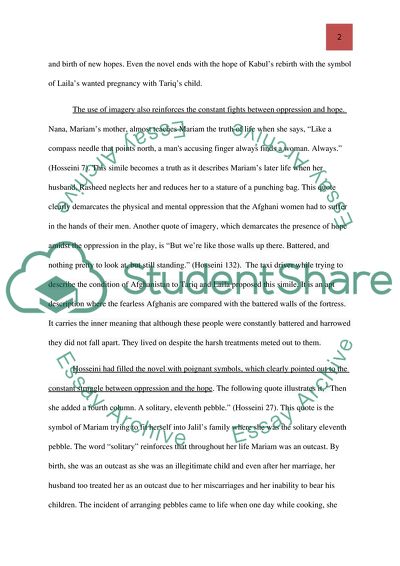Cite this document
(“A Thousand Splendid Suns by Khaled Hosseini Essay - 1”, n.d.)
Retrieved de https://studentshare.org/literature/1652927-a-thousand-splendid-suns-by-khaled-hosseini
Retrieved de https://studentshare.org/literature/1652927-a-thousand-splendid-suns-by-khaled-hosseini
(A Thousand Splendid Suns by Khaled Hosseini Essay - 1)
https://studentshare.org/literature/1652927-a-thousand-splendid-suns-by-khaled-hosseini.
https://studentshare.org/literature/1652927-a-thousand-splendid-suns-by-khaled-hosseini.
“A Thousand Splendid Suns by Khaled Hosseini Essay - 1”, n.d. https://studentshare.org/literature/1652927-a-thousand-splendid-suns-by-khaled-hosseini.


